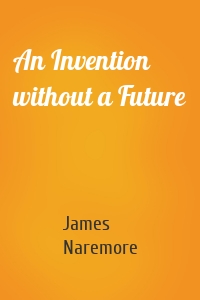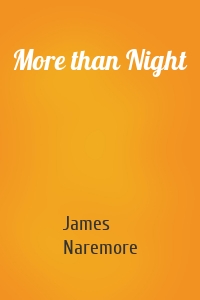James Naremore
4 кн.
An Invention without a Future
In 1895, Louis Lumière supposedly said that cinema is «an invention without a future.» James Naremore uses this legendary remark as a starting point for a meditation on the so-called death of cinema in the digital age, and as a way of introducing a wide-ranging series of his essays on movies past and present. These essays include discussions of authorship, adaptation, and acting; commentaries on Howard Hawks, Alfred Hitchcock, Orson Welles, Vincente Minnelli, John Huston, and Stanley Kubrick;...
| Автор | James Naremore |
Charles Burnett
In the first book devoted to Charles Burnett, a crucial figure in the history of American cinema often regarded as the most influential member of the L.A. Rebellion group of African American filmmakers, James Naremore provides a close critical study of all Burnett’s major pictures for movies and television, including <I>Killer of Sheep</I>, <I>To Sleep with Anger</I>, <I>The Glass Shield</I>, <I>Nightjohn</I>, <I>The...
| Автор | James Naremore |
More than Night
"Film noir" evokes memories of stylish, cynical, black-and-white movies from the 1940s and '50s—melodramas about private eyes, femmes fatales, criminal gangs, and lovers on the run. James Naremore's prize-winning book discusses these pictures, but also shows that the central term is more complex and paradoxical than we realize. It treats noir as a term in criticism, as an expression of artistic modernism, as a symptom of Hollywood censorship and politics, as a market strategy, as...
| Автор | James Naremore |





